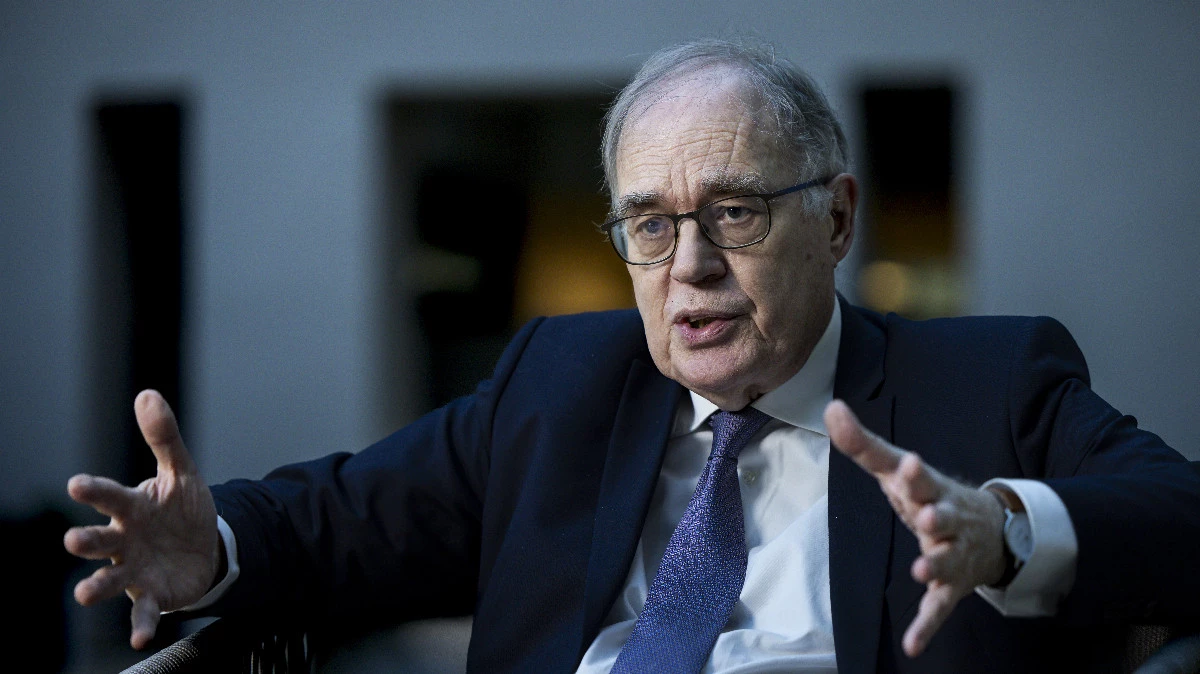
- Based on your professional experience in the EU, how do you see Europe keeping up with Asia in terms of competitiveness?
- There are four key components to global competitiveness. Relative prices, productivity, innovation and talent. The equation looks different for Europe, because on top of those four elements that constitute competitiveness, there is one critical element that facilitates each of them: growth. When you have growth, you can reinvest, you can take more risks. It's clear that for the next few years, if not the next decades, Asia will continue to be ahead of Europe in terms of growth rates. So every single effort made on any of those four components of competitiveness will be facilitated on the side of Asia. That gives a dynamic advantage to Asia over Europe. Yet Europe starts from higher levels in at least two areas which are innovation and talent. Innovation is an undecided race, especially with China. BYD now has more vehicles on the road than any other EV producer in the world, China by itself, not just Asia, is ahead of Europe. But Europeans are more concerned about other areas like artificial intelligence and quantum computing where Europe does not have that kind of advantage that has been guaranteed by several centuries of production increases. In the area of talent, the game is still more open.

- EU policymakers are increasingly seeking to separate Europe's economy from China's under the banner of de-risking. Do you think this is in Europe's interest?
- Decoupling and de-risking are part of a global trend, which I don't hesitate to label as the collapse of multilateral disciplines. We see a trend by which governments, but also firms, individuals, organizations seem to believe less in the power of international cooperation. And that's a very worrying trend because once this discipline, but also this confidence, this trust in the value of cooperation starts to diminish, everybody is a loser. So it's not a matter of deciding or judging whether one will lose more than the other. The fact is that everybody loses. So in terms of collective optimum, it's not something we wish to have. There are other fashionable expressions that in my view relate to the same phenomena, like nearshoring or friendshoring. These mean again a retreat from international cooperation, from international trade and they represent the same kind of danger.
- What trends in international trade would you highlight? There is a lot of talk about the process of dedollarisation, what do you expect in this area?
- First of all, I think we need a redefinition of international trade. I remember writing an article, I think it was in 1996, the title was China will change the WTO more than the WTO will change China. And the idea was very simple. Looking at the rules of trade, as they were then defined, it was clear that some markets would be swamped by Chinese production. There was no other way. And yet, after it took place, as many people predicted it would take place, people were starting to say oh, we need to change the rules, okay? So as if you change the rules because of the results you obtain. And that is very dangerous. You need to change the rules when you find a better way to reach collective optima, when you feel that something is unfair. But unfair has to be defined along a number of rules which themselves have to be universally accepted. So right now the multilateral trading system is in need of being rebuilt. And if it is not, it's going to continue to develop along the lines of regional trade agreements and protectionism. The dedollarisation of trade flows is, for me, an epiphenomenon. Oil used to be traded only in US dollars. Then there were attempts to use other currencies, but these have remained limited and fundamentally they did not change much to the dynamics of the market. The whole system is unbalanced right now because it has lost its multilateral dynamics. We need to go back to the fundamentals. International trade needs to be redefined before it can be rebuilt.
*SCO is responsible for the annual publication of IMD's Smart City Index, which ranks over 140 cities around the world, see https://www.imd.org/smart-city-observatory.
The author is managing editor of Eurasia